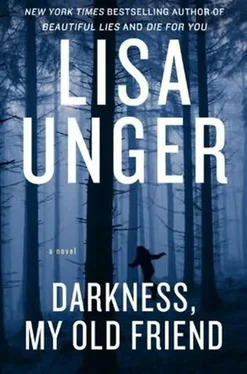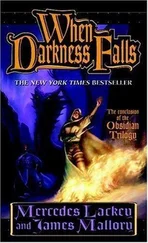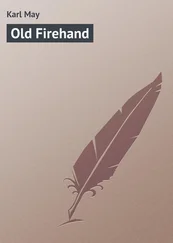As he pulled down the drive, the rain came. It was just a drizzle, really, a few drops glinting on the windshield. He didn’t even bother with the wipers. The blue sky was still peeking out from the low, gray cloud cover. But the sun had disappeared. Jones thought that they’d better start digging soon.
Before birth; yes, what time was it then? A time like now, and when they were dead, it would be still like now: these trees, that sky, this earth, those acorn seeds, sun and wind, all the same, while they, with dust-turned hearts, change only .
– TRUMAN CAPOTE,
Other Voices, Other Rooms
For those who believe, no explanation is necessary. For those who do not, no explanation will suffice .
– JOSEPH DUNNINGER
(“The Amazing Dunninger”)
Eloise didn’t remember that Marla Holt had been a smoker. And yet there she was in a pair of navy pedal pushers and a crisp white top, smoking a cigarette. She sat on the chair by the fireplace that Eloise hadn’t used in years, her legs draped over the arm like she owned the place.
“Do you mind?” Marla asked. She held up the cigarette in two slim fingers.
“Not at all,” said Eloise. There was no use in fighting these things. Better just to ride it out. She’d been vacuuming. Now she was talking to Marla Holt. That’s just the way it was some days.
“Can I help you with something?” asked Eloise. She took a seat on the couch.
“You were always so kind to me,” Marla said. She offered that warm smile Eloise remembered. Smiles like that, genuine and open, were truly rare. “So kind to the children. Thank you for that.”
“It was my pleasure,” said Eloise. “They’re lovely children. I hear Cara has two girls now, twins.”
Marla looked distant. “Yes.”
That’s how Eloise first knew that these types of encounters weren’t supernatural, exactly. Meaning that Eloise was quite sure she wasn’t talking to a ghost , in the traditional sense. Marla was more like a hologram, a facsimile, something Eloise’s mind did to translate energies for her consciousness. Eloise was certain that if she’d been talking to a real ghost-in other words, Marla’s disembodied spirit-Marla would have been more animated about her granddaughters. This was more like a broadcast, a message; today it happened to take the form of Marla Holt. From whom or what the message came, Eloise had no idea.
“What happened to you, dear?” Eloise said. “Where did you go?”
Sometimes it was that easy. Sometimes they just told you. Of course, it wasn’t always the truth. Or it was some kind of riddle. This was a very confusing business.
Marla took a drag of her cigarette, crossed her legs. Her long hair was lustrous and thick, falling in waves over her shoulders. Her body was equally lush, full at the breasts and hips.
“When you’re young, you only think about getting married, you know. The white dress, the flowers, the honeymoon. You never think about being married, what that means.” She looked up at the ceiling. “Do you have any regrets, Eloise?”
Marla’s words echoed Eloise’s recent conversation with Ray. This was another reason Eloise didn’t think the Marla in her living room was a ghost. There were always these subtle links to whatever was going on in her own life.
“Some days I’m not sure I have anything but regrets,” said Eloise.
“So you know what I mean.” Marla tossed the cigarette into the fireplace. A fine line of smoke wafted up toward the ceiling. Of course, there was no scent of tobacco in the air.
“I wasn’t happy,” Marla said. “And in that unhappiness I made mistakes.”
“You had an affair?”
“There were dalliances. I wouldn’t call them affairs. Flirtations?” She pressed her bloodred lips into a tight, thin line.
“He knew I was a flirt,” Marla said. “He liked that about me at first. He was so quiet, reserved. With me he could be that. My personality more than made up for it. And he kept me centered, kept my feet on the ground.”
“I can see that.” Eloise had found that it was better to agree with them, to be encouraging.
“Isn’t it funny, though, that the things we love about each other at first become the things we hate later on? I was flamboyant. He was staid and professorial. I wanted to spend. He wanted to save. We were so different. And in the beginning, that was okay. And then, suddenly, it was oppressive.”
“So what happened? Did he catch you with someone?” Eloise said gently. If she didn’t try to move it along, it could go on forever. And the longer it took, the more exhausted she’d feel afterward.
“That would be easy, wouldn’t it?” Marla said with a mirthless laugh. “Husband catches me in the act, kills me in a jealous rage. Or miserable wife runs off on her husband and two kids, disappears forever.”
“Then what? What happened?”
Marla got up and started walking toward the door. Then she turned to look at Eloise with a pleading expression.
“I was wondering if I could convince you to let this one go,” Marla said.
It was little phrases like that that disturbed Eloise the most, so familiar but off the mark. Let this one go? She’d let them all go if she could. She wasn’t the one who couldn’t let go of the people who had passed. It was everyone else.
“It’s Michael who can’t let you go,” Eloise said.
“I mean, it doesn’t matter anymore,” Marla said, as if Eloise had argued the point. “Mack’s gone. He suffered the most with all of it. If the truth comes out now, it’s only going to cause more pain.”
Eloise lifted her palms. “What can I do?”
But Marla wasn’t listening. They never did.
“You know what my biggest mistake was?” she said. She was crying now. “I let him love me too much. I catered to it. I loved how much he loved me.”
“Mack did love you,” Eloise said. She wasn’t sure what Marla meant. “I always saw love there.”
She shook her head. “No, Eloise. Not Mack. Michael.”
Eloise was lying on the floor then. The vacuum cleaner was still running beside her. She reached over to turn it off and then lay back down in the silence that followed. Her head ached, presumably from the fall, which she did not remember. She’d met a woman, another so-called psychic, who’d taken to wearing a helmet at home, where most of her visions occurred. So many blows to the head cannot be healthy for the living. The dead have no regard for us whatsoever, so we must protect ourselves .
Prior to her accident, Eloise had had little faith and less religion. She didn’t believe in the Catholic God she’d been raised with. The concepts of heaven and hell, a divine system of punishments and rewards, seemed overly simplistic. The world, life, was so complicated. How could the afterlife be any different? She’d been firmly agnostic for most of her remembered life. Her visions and encounters, the sight she had after her accident, did nothing to change her position.
In the industry there were plenty of psychics who claimed to talk to the dead, to know the geography of the world beyond. Some of them were quite convincing-millions bought their books, attended their seminars; some of these people had appointments scheduled for years with the grieving who had unfinished business with the dead. And Eloise couldn’t say for certain that they weren’t doing what they said they were. Maybe souls did linger, to say good-bye, to offer an apology, to seek justice-all those things we don’t always get in life. And the living do cling, unable to face the possibility that after death there is nothing. That sometimes there is no forgiveness, no resolution, no justice. It just ends, it just goes dark.
Читать дальше












